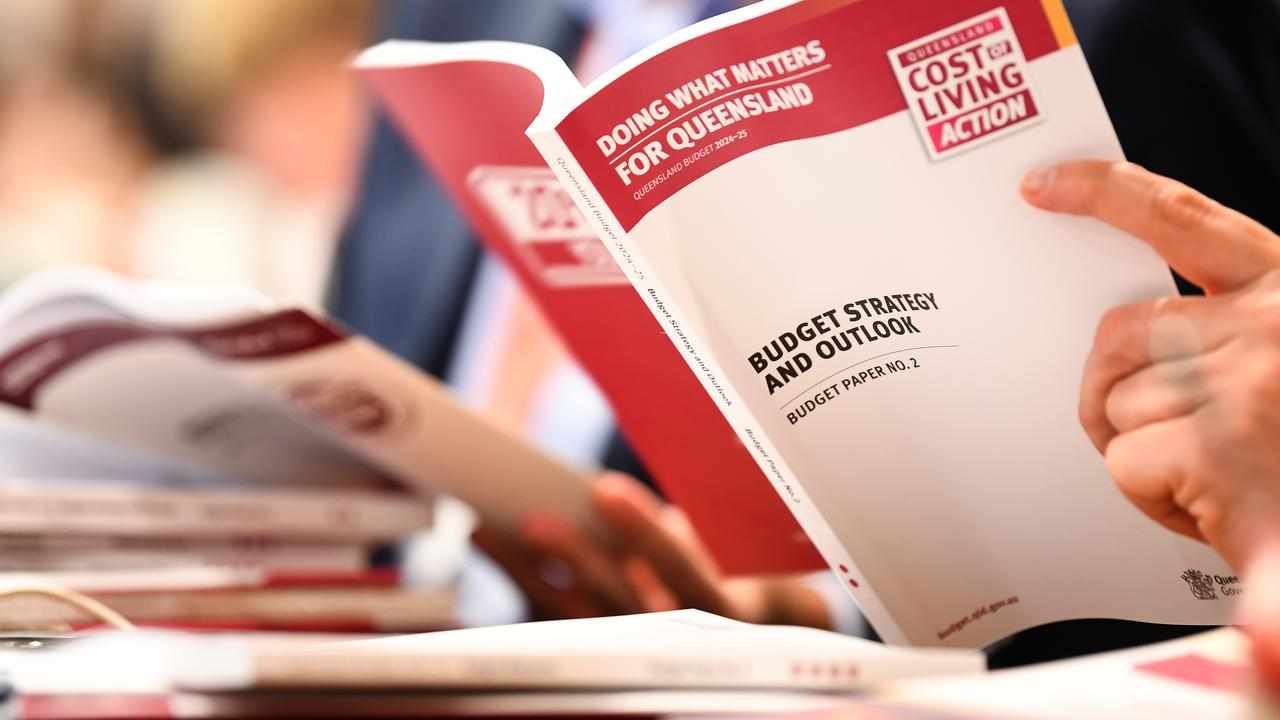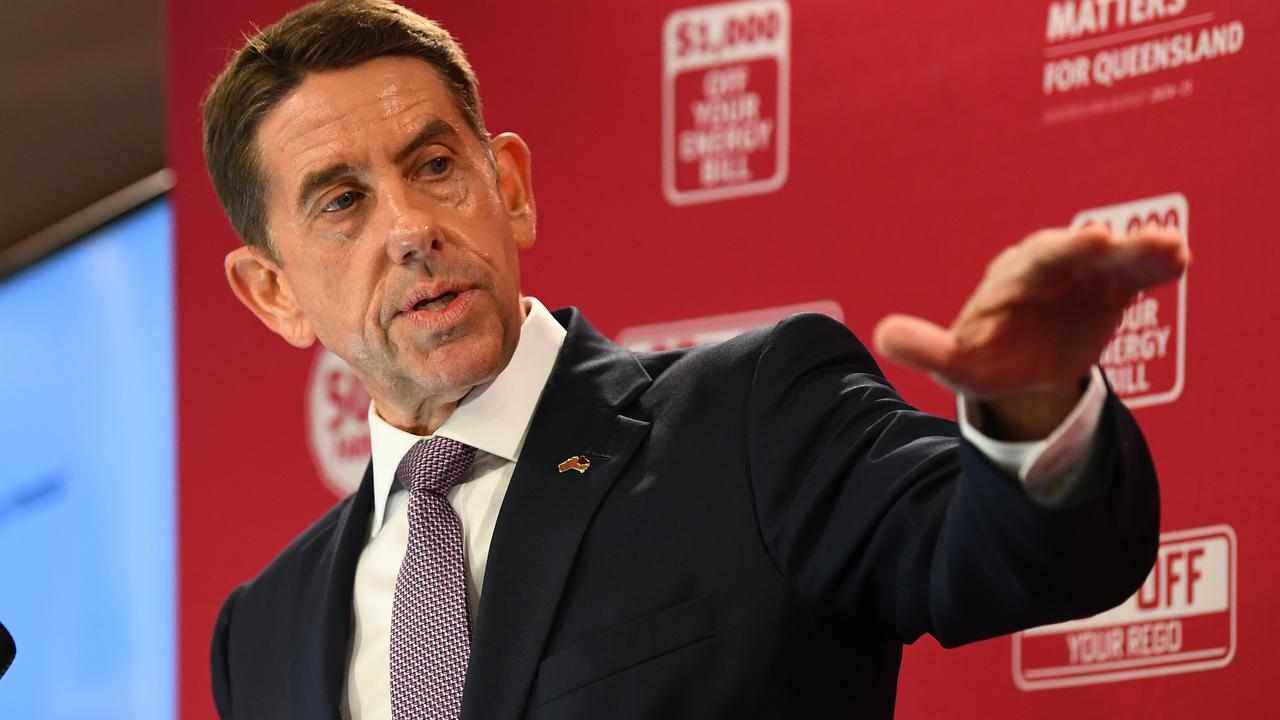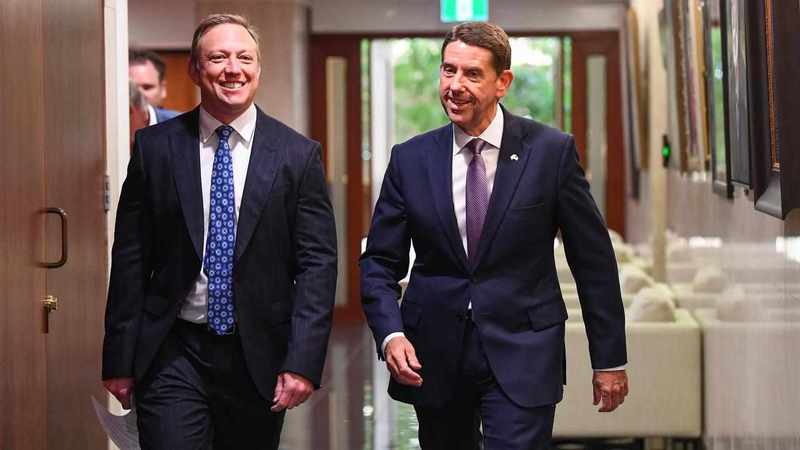The countdown to the Queensland election has begun after a cash splash on cost-of-living relief plunged the state budget into deficit.
Treasurer Cameron Dick on Tuesday handed down his fifth budget, saying more than $11 billion in concessions would be provided to Queensland families and businesses.
The Labor government forecast a $2.6 billion budget deficit for 2024-25 because of its spending splurge.
But Mr Dick made no apologies, saying the budget made the government's "values and plans" clear before the October poll.
In what sounded like an election campaign launch, Mr Dick urged Queenslanders to look to the future and not the past when they vote after showering them in "record" concessions.
The budget marked the first under Steven Miles who took over the reins after long-term premier Annastacia Palaszczuk retired.
"The election on October 26 is a fight about the future. It's not a referendum on the last nine years," Mr Dick said in a nod to Ms Palaszczuk's reign.
"It is no secret that on October 26, Queenslanders face a choice.
"This budget makes clear the values and the plans that the Miles Labor government will be putting forward when Queenslanders are asked to make that choice."
The Miles government offered a raft of measures to help Queenslanders make ends meet - and boost their election chances - with more coming on Tuesday.
It announced a freeze on government fees and charges, including driver's licenses, at a cost of $180 million.
Queenslanders had already been told they would receive $1000 off household energy bills plus another $300 from the commonwealth, 20 per cent off car registration and 50-cent public transport for six months.
The government unveiled $3.8 billion in new cost-of-living relief, taking total concessions to $11.2 billion.
Mr Dick said $91 billion in overall government spending for 2024-25 would also ease the pressure on health, housing and infrastructure after a record population surge.

Queensland's population increased by about 144,000 from September 2023, including 88,000 from overseas.
"We've been going through and may still be going through the biggest influx of people that our state has ever seen,” Mr Dick said.
Coal royalty revenue peaked at $15.3 billion in 2022-23 but will fall to just $6.2 billion in the forthcoming financial year.
It helped the 2023-24 budget enjoy a $564 million surplus.
The 2024-25 budget also featured increases to the first-home owner concession on stamp duty, with about 10,000 buyers a year set to benefit.
A $107.3 billion allocation over four years to the government’s total capital program was also unveiled, expected to support 72,000 jobs.

It boosted the government's total infrastructure works to $225 billion over 13 years to 2027-28.
Budget papers revealed Queensland was heading toward $172 billion in total debt by 2027-28, revised from $188 billion.
Mr Dick said building and construction costs in the three years to March 2024 were up 31.2 per cent.
But it will not stop the government investing $26 billion to their energy and jobs plan that will focus on renewable and storage projects.
Meanwhile, health funding in 2024-25 will receive an $28.9 billion injection.
A plan to build one million homes by 2047 will receive an additional $3.1 billion in funding.
A further $232.2 million in 2024-25 will support housing and support for homelessness.
But shadow treasurer David Janetzki said the government was not looking past the October poll.
"This election budget was all about getting Steven Miles through the next four months to the election, not a plan for Queenslanders' future," he said.
"What we really need to see from this budget and fail to see is a long term structural plan to address cost of living pressures."









